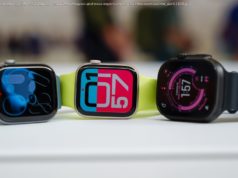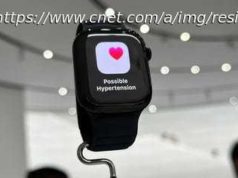Apple CEO Tim Cook is claiming that 2017 iPhone performance throttling was disclosed initially, but media reports say otherwise. Page: 1
Apple CEO Tim Cook may have acknowledged that his company came up short when communicating about a performance-reducing update to iOS, but one of his statements defending Apple’s handling of the issue is not ringing true.
While acknowledging twice in an ABC News interview last week that Apple « should’ve been clearer » about what the company was up to, Cook also took a defensive posture during part of the interview.
« When we did put [the iOS update] out, we did say what it was, » Cook told ABC News. « But I don’t think a lot of people were paying attention. »
[Related: Apple CEO Tim Cook Acknowledges Lack Of Transparency Around iPhone Throttling]
Cook was referring to the measures that were initially delivered in January 2017 as part of iOS 10.2.1. It wasn’t until December that Apple acknowledged that the measures meant slowing the operations of older iPhone models to help reduce the impact on batteries as they age.
However, Cook’s statement that Apple « did say » that the updates would hurt performance is not accurate, according to several media reports.
For instance, Business Insider reported that Apple’s release notes for the January 2017 iOS update did not mention performance throttling in any way and that a disclosure about « power management during peak workloads » was only added later on, after the initial publication of the release notes.
Apple did not immediately respond to a request for comment.
At Troy Mobility, an enterprise mobility solution provider based in Peabody, Mass., Chief Customer Officer Paul Troisi said Apple’s handling of the throttling issue has amounted to an « unacceptable response. » Most users do not read release notes, but users wouldn’t have known about the performance-reducing changes « even if [they] did read the release notes, » Troisi said.
« I don’t think there was clear communication that your phones will be throttled because your batteries are dying and not able to provide a peak level of performance. It doesn’t say anything about that, » Troisi said. « I think first and foremost it could’ve been communicated significantly better. »
The lack of transparency from Apple is a particularly troubling issue for enterprises whose executives rely heavily on their iPhones, Troisi said.
« Enterprises can’t afford to have their high-level executives having phones being throttled and batteries dying and phones shut off on a regular basis, » he said.
In response to the disclosure of the throttling issue, Apple has announced that out-of-warranty iPhone battery replacements will be available this year for $29, down from the normal price of $79.
Apple also plans to let users toggle off the feature that slows performance in favor of preserving battery life. Cook said that option will first be released to developers in February but didn’t disclose when it will be generally available to iPhone users.
The move will « give people the visibility of health of their battery, so it’s very, very transparent, » Cook said in the ABC News interview.
The feature will tell users « ‘we’re reducing your performance by some amount in order to not have an expected restart.’ And if you don’t want it, you can turn it off, » he said.
However, Cook noted, « we don’t recommend » turning off the throttling because a resulting restart may cause major problems for users.
Cook also said he was sorry that the situation unfolded the way it did. The performance throttling was seen by many as a way to push customers to buy faster new iPhones.
« We deeply apologize for anybody that thinks we had some other kind of motivation » than to solve problems for customers, Cook said.






